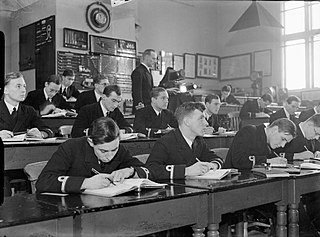Related Research Articles

Rheydt is a borough of the German city Mönchengladbach, located in the west of North Rhine-Westphalia. Until 1918 and then again from 1933 through 1975 it was an independent city. After merging with Mönchengladbach, the central station kept its original name, making Mönchengladbach the only city in Germany to have two stations called Hauptbahnhof.

The Bureau of Indian Affairs (BIA), also known as Indian Affairs (IA), is a United States federal agency within the Department of the Interior. It is responsible for implementing federal laws and policies related to Native Americans and Alaska Natives, and administering and managing over 55,700,000 acres (225,000 km2) of reservations held in trust by the U.S. federal government for indigenous tribes. It renders services to roughly 2 million indigenous Americans across 574 federally recognized tribes. The BIA is governed by a director and overseen by the Assistant Secretary for Indian Affairs, who answers to the Secretary of the Interior.

The United States District Court for the Southern District of California is a federal court in the Ninth Circuit.

The chief justice is Fiji's highest judicial officer. The office and its responsibilities are set out in Chapter 5 of the 2013 Constitution of Fiji. The chief justice is appointed by the president on the advice of the prime minister.

Many of the divisions and offices of the United States Department of Justice are headed by an assistant attorney general.

The United States District Court for the Western District of Pennsylvania is a federal trial court that sits in Pittsburgh, Erie, and Johnstown, Pennsylvania. It is composed of ten judges as authorized by federal law. Appeals from this court are heard by the United States Court of Appeals for the Third Circuit.
Deputy Prime Minister of the Republic of Poland is the deputy of the Prime Minister of Poland and member of the Council of Ministers of the Republic of Poland. They can also be one of the Ministers of the Republic of Poland. The Constitution of the Republic does not limit the number of persons who can hold the position of deputy prime minister simultaneously.

The 1st Strategic Aerospace Division is an inactive United States Air Force organization. Its last assignment was with Strategic Air Command, assigned to Fifteenth Air Force, being stationed at Vandenberg Air Force Base, California. It was inactivated on 1 September 1991.

The 17th Air Division is an inactive United States Air Force unit. Its last assignment was with Pacific Air Forces, stationed at U-Tapao Royal Thai Navy Airfield, Thailand, where it was inactivated on 1 January 1976.

Balldale is a village in the mid-southern part of the Riverina in New South Wales, Australia. It is about 15 kilometres (9.3 mi) north-east of Corowa and about 18 kilometres (11 mi) west of Brocklesby.

Frank Ramsay McNinch was born in Charlotte, North Carolina. He was a political figure who served as the mayor of Charlotte, as chairman of the Federal Power Commission, and as chairman of the Federal Communications Commission. In the 1928 presidential election, McNinch, a Democrat, supported Republican Herbert Hoover for president. After he was elected, Hoover appointed McNinch to a seat on the Federal Power Commission, leading to a split in the North Carolina Democratic Party that damaged the political fortunes of new U.S. Sen. Cameron Morrison, a friend of McNinch. He was later appointed FPC chairman by Franklin D. Roosevelt.

The Royal Naval Engineering College was a specialist establishment for the training of Royal Navy engineers. It was founded as Keyham College in 1880, new buildings were opened in Manadon, Devon in 1940 and the old college site at Keyham closed in 1958. The college was renamed HMS Thunderer in 1946, and closed in 1995.
Events from the year 1884 in the United States.

The Admiral-superintendent, Portsmouth was the Royal Navy officer in command of the Naval Dockyard. Portsmouth from 1832 to 1971; prior to this date a resident Commissioner of the Navy Board had had oversight of the yard, since 1649. In May 1971 command responsibility for naval staff in the dockyard was merged into the wider local command structure, initially under the dual designation of Flag Officer, Portsmouth and Admiral Superintendent, Portsmouth but in July 1971 was again renamed Flag Officer Spithead and Port Admiral Portsmouth after a couple of months. These joint titles was used until 1975, and despite the name change the command still covered the same geographic area and operational responsibilities until 1996 when its ceased to exist as a separate command appointment and its responsibilities were assumed by the staff of Flag Officer First Flotilla.
References
- ↑ Robert A. Caro (2002). Master of the Senate: The Years of Lyndon Johnson . ch. 10-12. ISBN 0-394-52836-0.
- ↑ Staff (1995). "A Salute: 75 Years for the FPC and FERC" (PDF). Energy Law Journal. 16 (2): 293. Archived from the original (PDF) on 2011-07-26. Retrieved 2009-10-08.
- ↑ "Past FPC Chairmen".
- ↑ "Past FPC Commissioners".
- ↑ 42 U.S.C. § 7172.

